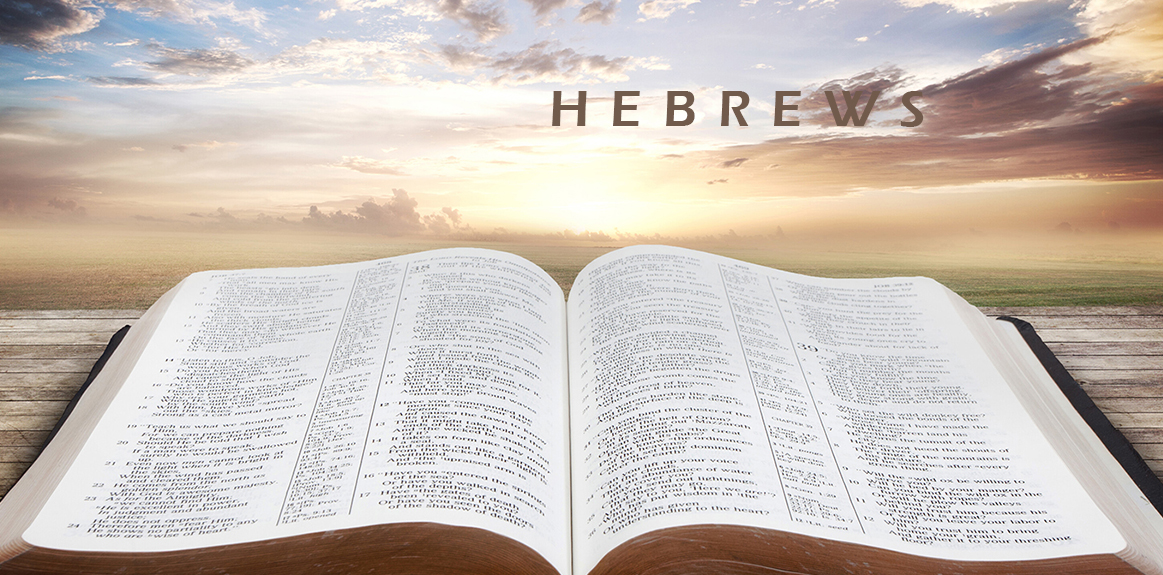For every high priest chosen from among men is appointed to act on behalf of men in relation to God, to offer gifts and sacrifices for sins. He can deal gently with the ignorant and wayward, since he himself is beset with weakness. Because of this he is obligated to offer sacrifice for his own sins just as he does for those of the people. And no one takes this honor for himself, but only when called by God, just as Aaron was.
So also Christ did not exalt himself to be made a high priest, but was appointed by him who said to him,
“You are my Son,
today I have begotten you”;
as he says also in another place,
“You are a priest forever,
after the order of Melchizedek.”
In the days of his flesh, Jesus offered up prayers and supplications, with loud cries and tears, to him who was able to save him from death, and he was heard because of his reverence. Although he was a son, he learned obedience through what he suffered. And being made perfect, he became the source of eternal salvation to all who obey him, being designated by God a high priest after the order of Melchizedek.
Hebrews 5:1-10
The writer of Hebrews has already mentioned in a previous chapter the idea of Jesus as our high priest (Hebrews 2:17). But he was not yet ready to examine it in full. Now, he is ready to explore it fully and does so beginning in this chapter. He will temporarily lay it aside for a while due to the condition of the readers and will come back to it in chapter seven. In this message, we will begin to explore what the writer of Hebrews teaches in chapter five.
There were three offices in Israel that God had established to govern the nation; prophets, priests, and kings. Each of these offices pertained to needs that human beings have as sinners. Our first need as fallen creatures is our need to understand his will. Having sinned and broken God’s will, we were plunged into darkness, darkened in our understanding. That’s why our first need is for a prophet to speak the Word of God to us so we can understand his will. But the moment we gain an understanding of his will we immediately realize that we have failed to do that will. That means that our next need is mediation—someone to remove the sin barrier and maintain our relationship with God. And for that God provided a priest; someone who can not only remove the sin barrier, but one to maintain our relationship with God.
In this letter, the writer spends much time dealing with Messiah as our great high priest. In a sense, Messiah was Prophet for 33 years but has now been High Priest for almost 2000 years. One must ask why this theme of Messiah as our high priest takes up such a prominent place in this letter. It could be that this letter was written to former priests, many of which believed that Jesus was the Messiah in the first century (Acts 6:8). Or else these people might have been affected by the Dead Sea Sect which focused much on a pure priesthood.
But the writer, in this section of the letter, focuses on the similarities between Aaron and Jesus, our great high priest. In a couple of blogs, we will see that the Lord Jesus is meant to be even greater than what Aaron represents. Here, we simply are told that Messiah was appointed on behalf of the people to maintain their relationship to God even as Aaron was appointed on behalf of the people to maintain their relationship to God.
To understand this, let us first look at the three qualifications each high priest had to meet to serve as high priest:
First, the writer says, “every high priest is selected from among men” (Hebrews 5:1). That meant a priest had to be someone who could have compassion on those he represented because he himself was a man who is weak. Aaron was the perfect representative in this regard. What are the similarities between the Lord Jesus and Aaron in this regard? The Lord Jesus was made a man so he could sympathize with our weaknesses. There are only two matters in which he was not like us—his virgin birth and his perfect, sinless life. The writer makes it clear that He has been totally identified with our weakness. There was deprivation, indignity, weakness, and suffering that was his lot. He is forever the Son of Man.
In times past, the Church has had difficulty with this doctrine that Messiah was fully man. But just as Aaron was selected from among men to represent them, so the writer of Hebrews reminds us that Messiah was chosen from among because of his weakness.
Secondly, the writer of Hebrews tells us that like the priests according to Aaron, he had to have something to offer. In this regard, the many specific offerings of the Levitical order were types and shadows of the Messiah’s offering up Himself on our behalf. Think of Abraham offering Isaac on Mount Moriah. When Isaac asked his father where the sacrifice was, Abraham could have turned to him and said, “It is going to be you at this time.” That is essentially what the Father said to the Son at Calvary: “Son, you must lay down your life for the world.” There had been thousands of lambs offered through the centuries, and they all demonstrated how serious a thing sin is. They all demonstrated that only death can expiate sin and deal with it effectively.
That is why Hebrews shows us that the Son became a man and lived among us. From the beginning of his earthly life He knew He came to die. When John the Baptist saw Him he declared, “Behold, the Lamb of God” (John 1:36). He Himself said during his earthly ministry, “No one takes my life from me; I lay it down willingly.” So, the writer of Hebrews can now say, “But now he has appeared once for all at the end of the ages to do away with sin by the sacrifice of himself.”
The final thing the writer says here is that, “No one takes this honor upon himself; he must be called by God, just as Aaron was” (5:4). Messiah did not take upon himself this honor, He was appointed by God to this office. This should bring amazing comfort to us. Instead of blaming us for our failures and weaknesses, he instead provides us with the ultimate high priest. This introduces us to one of the basic themes of the Gospel—God is not against us but for us. No matter how we fail, or how weak, we will always have an “advocate at court” pleading our case. That means that our peace with God does not depend on my faithfulness to God; it does not even depend on Christ’s faithfulness to me, but on His faithfulness to Him Who appointed Him! What a pillow to rest our heads on!





0 Comments